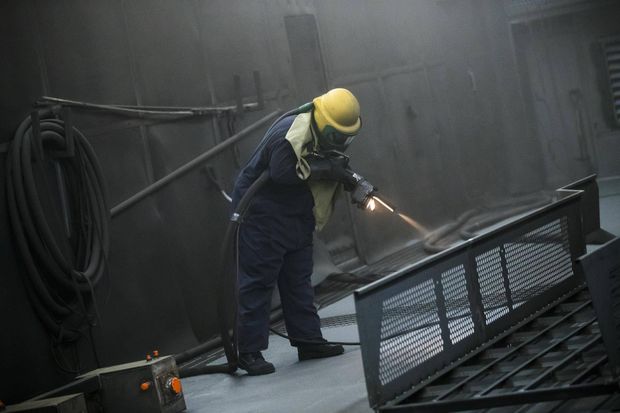The shortage of skilled workers in Canada’s industrial sector is reaching a new intensity, with many factory owners saying the lack of talent is hindering the growth of their companies. “It’s getting worse every year,” says Doug Kamphuys at Ellesmere Fabricators Ltd., a custom steel fabricator that makes massive smokestacks and other metalwork for hospitals and waste-water treatment plants.
The difficulty in finding workers such as welders, tool and die makers, machinists and millwrights has long been a problem for industrial companies, such as those clustered along Nugget Ave. in the Toronto suburb of Scarborough, where Ellesmere Fabricators is located. But now, as the industrial work force turns increasingly grey, the skilled-worker shortage has become the top concern for many factory owners. A recent survey by the Ontario Skilled Trades Alliance reported that 41 per cent of employers would hire more people if they could find those with the skills they needed.
“People are retiring and the skills aren’t being replaced,” says Jocelyn Bamford, vice-president of Automatic Coating Ltd., a factory that adds protective coatings to pipes and other materials. “Nobody wants their kids to go into manufacturing, which I think is a shame.”
In the Canadian Tooling & Machining Association 2017 Wage & Business Survey, companies reported that 20 per cent of their skilled workers are over the age of 54 and will be retiring in the next decade. In Scarborough, the factory owners are keenly aware that replacing them with younger workers won’t be easy. The owners lament the closure of shop classes in the local high schools and the loss of some college programs, which taught skills like mould machining and tool and die making.
“A lot of colleges dropped programs because of attendance,” says Robert Cattle, executive director of the Canadian Tooling & Machining Association and program co-director of the Ontario Manufacturing Learning Consortium, which runs a provincially funded program to train young machinists. “If courses aren’t getting filled, they drop them and move onto something else that’s popular.”
Manufacturing jobs offer healthy wages – millwrights and tool and die makers earn an average of $26 to $29 per hour – yet the industry continues to lose workers to higher-paying fields such as construction, utilities and resources extraction. The gloomy outlook for the industrial sector has also scared off potential workers. And although many simple manufacturing operations have moved offshore in recent decades, there continues to be a demand for specialized and custom work. In fact, since the depths of the last recession, many manufacturers – 93 per cent of which are small businesses – have had healthy recoveries and their factories are humming.
“We have three big projects right now, and we would do more if we had more workers,” says Lloyd Shoniker, owner of Stefco Ltd., a custom metal fabricator also located on Scarborough’s Nugget Ave. Across the street at Define Metal Fabrication Inc., co-owner Michael Grieger looks dismayed as he leafs through a stack of résumés on his desk.
Source: https://www.theglobeandmail.com/report-on-business/small-business/talent/canadian-factories-say-shortage-of-skilled-workers-is-hurting-growth/article37848454/



